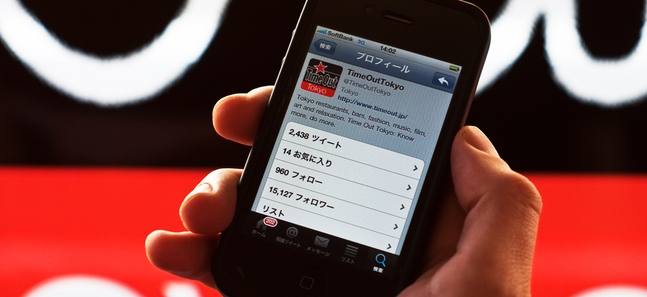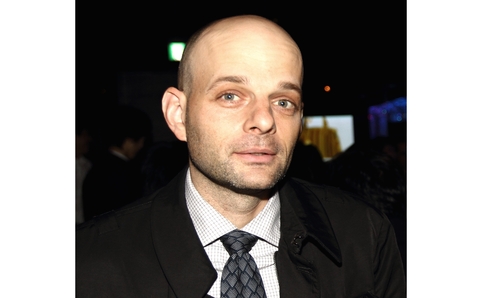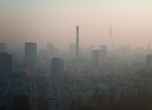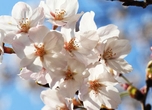6 Tokyo Tweeters who kept the city informed
Time Out meets the foreigners to follow one week on

Posted: Fri Mar 18 2011
The Sendai earthquake hit at 2.46pm, March 11. As the capital shook, most lines of communication were instantly severed, but one stayed strong. Within seconds, reports flashed up across Twitter-supporting devices – most of them wildly speculative, a few of them based on real facts as they came to hand.
In the days that followed, a handful of Japan-based Tweeters began to distinguish themselves as level-headed sources of information, taking their data from trusted feeds, and refusing to deal with a supposedly dependable mainstream media that seemed intent on reporting in panic-coloured headlines.
One week on, they tell Time Out Tokyo their quake stories.
Brett Bull: @TokyoReporter

Real name: Brett Bull
Twitter name: @tokyoreporter
Location: Tokyo
Occupation: I am a civil engineer for a Japanese construction company and a freelance writer for the Japan Times, Variety, Metropolis, CNN Traveler, and a few others.
Where were you at the time of the quake?
I was at my desk in my office in Otsuka.
At what point did you think to get on Twitter, and why did that make sense to you?
When the initial shaking started, I sent out two quick messages. When it continued, I dove under my desk and waited (for what seemed like forever) for the shaking to end. Once that happened, I checked the Japan Meteorological Agency's site for the quake data. I then sent out that data.
It made sense to me because I had been posting news, mostly off-beat content but also mainstream stuff, on my account for a while now. Further, once the tsunami began I realized the extreme severity of the situation: the office TV showed that NHK was issuing tsunami warnings of up to 10 metres for the coast, farms were getting inundated, fires were starting, ships were being smashed in ports, and Sendai Airport was going under water. I figured that hardly anyone outside of Japan had access to this footage from which to make any kind of report in English, and I was right. The response I got was overwhelming, so I just kept going through much of that night and then again the next day.
Since then, what have your movements been like around Tokyo? Been anywhere unusual? Seen anything particularly striking?
I usually travel by bike. On Friday night (after the quake), it was madness. Tokyo's streets and sidewalks were jammed with pedestrians. There were lines to use pay phones, people were standing around Shibuya Station waiting for cabs and buses, and convenience store shelves started emptying.
On Sunday, I went up to Sendai. I accompanied a TV crew from Finland. Buildings in the center of the city didn't suffer too much, but a lot of the city has no power, lines for gas are ridiculously long, people wait in line in front of grocery stores for food, and the tsunami devastation on the coast is as gruesome as what has been displayed on TV.
What sources have you found indispensable in order to keep your Twitter followers up to date?
That depends on the stage of the crisis. At the beginning, it was NHK's live coverage of the mounting tsunami devastation. After that, I was using NHK and the feeds of the other major networks that were established on Ustream. Since the Japanese media was on the ground first, I looked to papers like the Sankei Shimbun for images (which are language independent). But now that NHK World has English interpretation on its Ustream feed, I'm not bothering as much with trying to tweet quotes from press conferences. So I have started focusing on things that are not easily accessible in English, like the information about blackouts in the Tokyo area.
Honestly now, had you heard of a sievert before Saturday?
Yes. I am a civil engineer and studied physics. Having said that, I wouldn't say I've heard it used in casual conversation before.
Many people are concerned about Tokyo's safety. At the time of writing, what's your position concerning the evacuation of the capital?
That's a great question. As of now, I don't see a real compelling reason to leave. I am not, however, saying I wouldn't go. This is an extremely serious situation that seems to change each day.
Are there any charities or NPOs you're particularly favouring?
I’ve received many requests from people regarding this. I sent out a link for Second Harvest Japan.
All being well, what are you looking forward to most in Tokyo's near future?
This event will most certainly change Tokyo. I can't really say that there is anything I am really looking forward to. Perhaps if the ground stopped shifting, that would be a great start.
Now showing 1 of 6 | Next ►
Tags:
Tweets
- About Us |
- Work for Time Out |
- Send us info |
- Advertising |
- Mobile edition |
- Terms & Conditions |
- Privacy policy |
- Contact Us
Copyright © 2014 Time Out Tokyo














Add your comment